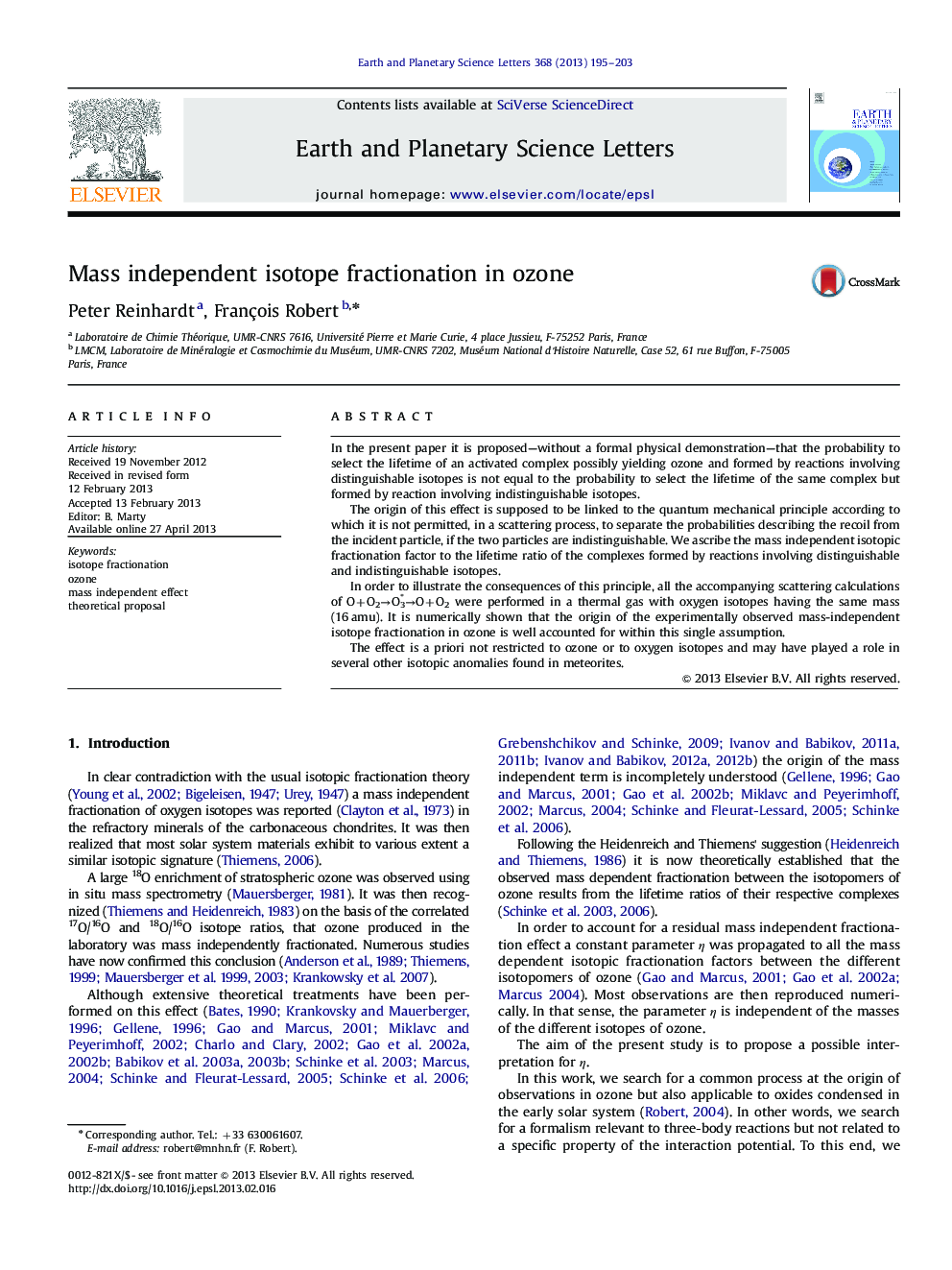| Article ID | Journal | Published Year | Pages | File Type |
|---|---|---|---|---|
| 6430326 | Earth and Planetary Science Letters | 2013 | 9 Pages |
â¢Mass independent fractionation of oxygen isotopes in ozone.â¢Isotope exchange in reactions involving indistinguishable isotopes.â¢Possible extension of the theoretical treatment to other chemical elements.â¢Implications in Geo- and Cosmochemistry.
In the present paper it is proposed-without a formal physical demonstration-that the probability to select the lifetime of an activated complex possibly yielding ozone and formed by reactions involving distinguishable isotopes is not equal to the probability to select the lifetime of the same complex but formed by reaction involving indistinguishable isotopes.The origin of this effect is supposed to be linked to the quantum mechanical principle according to which it is not permitted, in a scattering process, to separate the probabilities describing the recoil from the incident particle, if the two particles are indistinguishable. We ascribe the mass independent isotopic fractionation factor to the lifetime ratio of the complexes formed by reactions involving distinguishable and indistinguishable isotopes.In order to illustrate the consequences of this principle, all the accompanying scattering calculations of O+O2âO3*âO+O2 were performed in a thermal gas with oxygen isotopes having the same mass (16Â amu). It is numerically shown that the origin of the experimentally observed mass-independent isotope fractionation in ozone is well accounted for within this single assumption.The effect is a priori not restricted to ozone or to oxygen isotopes and may have played a role in several other isotopic anomalies found in meteorites.
